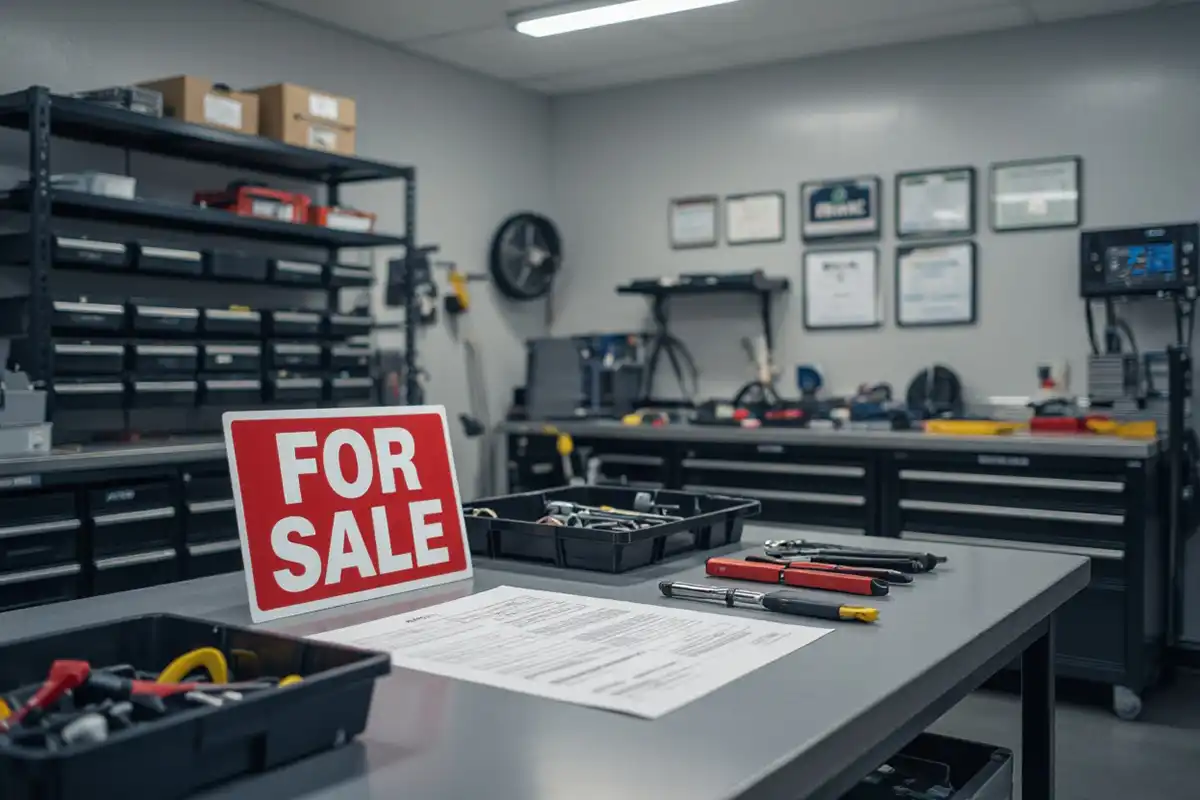
Selling or exiting your HVAC business is a major decision. Whether you're planning retirement, seeking new opportunities, or pivoting industries, having a step-by-step roadmap makes the process smoother and more profitable. Below is a structured guide - no fluff, just value.
Clarify Your Exit Strategy and Timing
- Why now? Identify what’s driving your decision:
- Retirement or lifestyle shift?
- Capitalizing on strong performance?
- Industry changes such as regulatory shifts or funding changes?
- For instance, recent regulatory ambiguity around refrigerant standards and paused IRA incentives can directly affect valuations. (source thenybbgroup.com)
- Timeline matters. Value preparation, due diligence, negotiating, and legal steps realistically take several months.
Get a Solid Business Valuation
- Update financials: Clean books and accurate EBITDA (earnings before interest, taxes, depreciation, and amortization) are essential.
- Hire a professional: A business appraiser or M&A advisor familiar with HVAC firms can provide a realistic valuation and benchmark against industry peers.
- Market factors count: Macroeconomic trends, local demand, and operational structure all impact buyer interest.
- Technology: Having software to manage a HVAC business already implemented will increase your valuation.
Strengthen Your Business Before Sale
- Showcase operational efficiency:
- Modern CRM / scheduling systems, well-trained staff, and documented SOPs make your business more attractive.
- Nurture recurring revenue: Service contracts, maintenance plans, or emergency services add stability.
- Clean up liabilities: Address pending compliance issues and clear debts to avoid surprises.

Identify and Prepare Buyers
- Who’s your buyer?
- Competitors in your territory
- Larger HVAC companies looking to expand
- Private equity or investors targeting home-service businesses
- Prepare your pitch:
- Track revenue over time, customer retention, technician certifications, and digital presence.
- Don’t forget the digital channel:
- Ensure your website, Google Business Profile, and reputational assets are clean and optimized.
Market the Sale and Negotiate
- Use an intermediary: A business broker or M&A advisor can help reach qualified buyers while preserving confidentiality.
- Screen buyers: Share high-level metrics before divulging detailed data.
- Negotiate smartly:
- You can structure partial seller financing, earn-outs, or performance-based deals.
- Consider tax implications - consult with your accountant or attorney.
Complete Due Diligence and Close the Deal
- Buyer due diligence includes:
- Reviewing your financials, contracts, workforce, licenses, and liabilities.
- Evaluating your customer data, service agreements, and supplier relationships.
- Legal transition:
- Draft agreements covering asset transfer, non-compete clauses, liabilities, and transition support (e.g., training).
- Complete licensing, vendor notifications, insurance changes, and client introductions.
Plan for What Comes Next
- Know your post-exit role:
- Will you stay on temporarily? Or leave immediately?
- Financial planning: Decide how you’ll use proceeds - retirement, reinvestment, diversification.
Emotional preparation: Letting go of your business can be emotional. Mentorship, consulting, or personal ventures can ease the transition
Wrapping Up
Selling or exiting your HVAC service company takes strategic planning and execution - but it doesn’t have to be overwhelming. By:
- Clarifying why and when
- Getting a reliable valuation
- Strengthening operations and documentation
- Identifying and pitching to qualified buyers
- Navigating negotiations and due diligence
- Planning your post-sale path
you give your business the best chance to command top value while ensuring a smooth transition.
Final Words
You’ve built a hard-working business that serves your community, now it’s time to build your exit strategy with equal care. Start with firm numbers, clean operations, and a buyer-focused approach. And remember, it’s not just about the sale, it’s about your next chapter.
